
Hawaii Ag Tech Initiative Receives $50,000 Federal Grant
The Hawaii Island Business Plan Competition has transformed into a statewide catalyst for food security innovation.
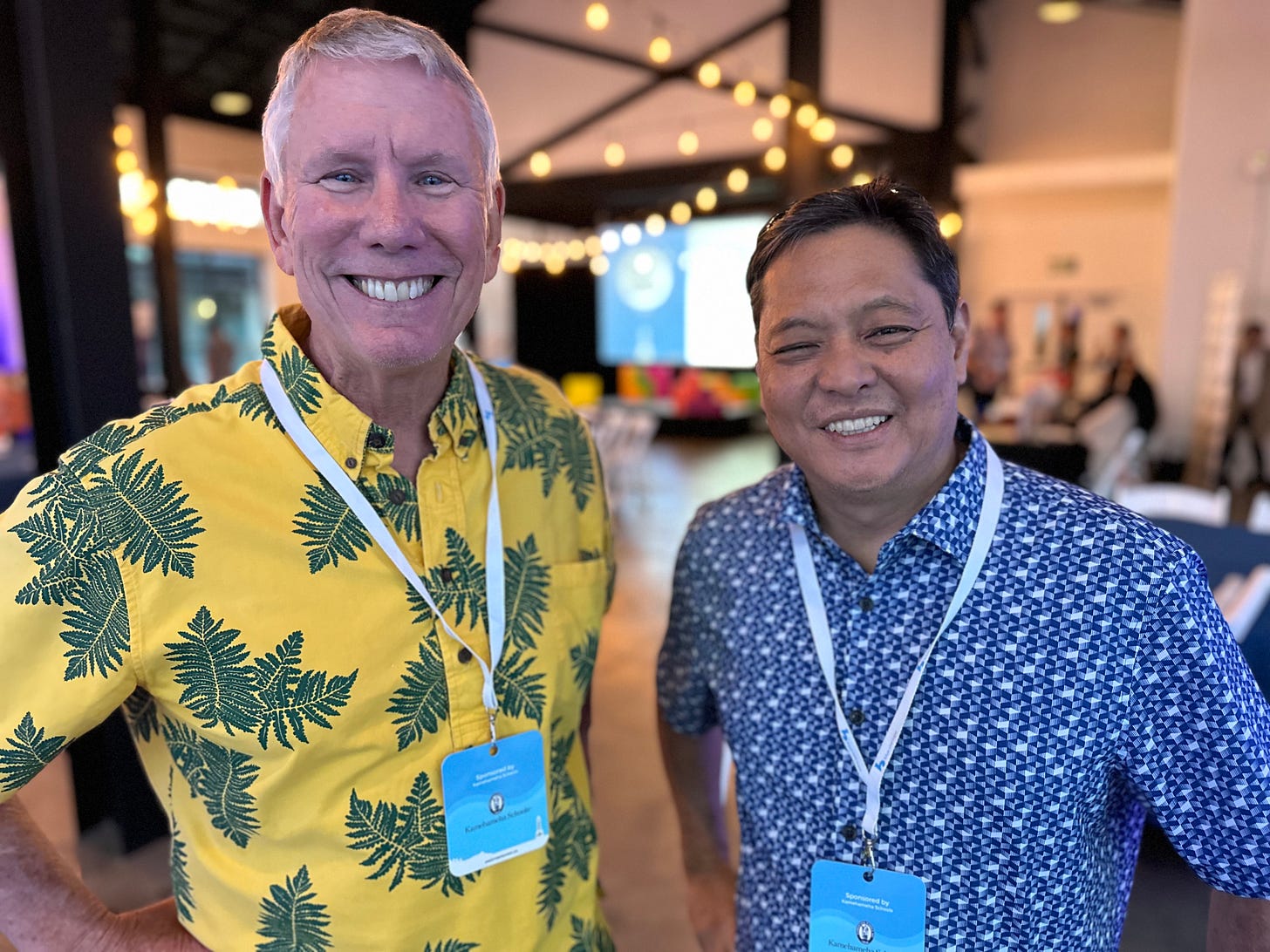
HIplan—the organization behind five Hawaii Island business plan competitions and an international agricultural technology conference—has been selected as a 2023 winner of the Growth Accelerator Fund Competition, organized under the U.S. Small Business Administration.
“We will be using the funds to attend and convene events with the goal of recruiting ecosystem partners who believe in the broad vision: to create a place-based technology hub that uses Hawaii’s competitive advantages to create tech companies that—when successful—have a reason to stay here rather than go to another ecosystem,” says HIplan executive director Jason Ueki.
The $50,000 award announced Wednesday is only the first stage of a multi-part funding program, and HIplan founder Jim Wyban and Ueki already have their eyes on winning the second round, which could bring an additional $150,000.
The road traveled

It has been a wild few years for Wyban and Ueki.
The pair created the non-profit Hawaii Island Business Plan Competition, or HIplan, in 2016. The annual contest was designed to foster the entrepreneurial ecosystem on Hawaii Island, and over five years, it drew more than 200 entries and awarded more than $200,000 to the most promising ideas.
Over those five years, Wyban and Ueki observed some clear trends in the promise and direction of local innovation: more than half of the businesses and proposed startups were agricultural. And every year the competition was held, the grand prize winner was a woman-led team. The last year of the competition was 2020, held virtually in the early months of the pandemic.
While there was an unavoidable two-year pause, it afforded them time to rethink the HiPlan mission, and how it was going to be achieved.
The new marquee event for HiPlan saw its debut last June: the International Tropical AgTech Conference, hosted at UH Hilo. The business plan competition and demo day was shelved in favor of an ambitious, two-day program to showcase the state of the art in global agricultural technology. Not only did the event bring in international agtech leaders, but it gave Hawaii experts and companies a chance to shine.
I was no expert, of course, but as CEO of Smart Yields, I had the honor of moderating a panel on ag tech solutions specifically for Hawaii and other tropical climates.
The conference was a success, and attendees were immediately clamoring for a follow-up event. Meanwhile, Wyban and Ueki’s dance card quickly filled up.
In March, they were named Startup Paradise Champions of the Year at the 2023 Hawaii Venture Capital Association’s entrepreneur awards. (I served on the selection committee.) They also established official relationships with Hawaii Community College in Hilo and the Hawaii Foreign Trade Zone in Honolulu.
Last month, they partnered with the THRIVE Agrifood Accelerator program, run by SVG Ventures, a leading investment firm that invests in early-stage ag-tech and food tech companies. As a result, the second annual conference is now the THRIVE Hawaii Agrifood Summit.
“What THRIVE brings to Hawaii is global visibility and establishes Hawaii as a tech hub in a global ecosystem,” Ueki explains. “THRIVE works with about 9,000 agrifood tech startups in more than 100 countries, and we are now part of this network.”
Now, the newly invigorated HIplan organization has been given a huge boost toward its long-term goal of putting Hawaii on the global tech map.
New funding for new ideas
The $50,000 SBA award was for a HIplan project proposal called “Germinate,” specifically positioned to be the first step in a longer journey toward a robust Hawaii ag tech ecosystem. And Ueki says he wasn’t entirely confident the pitch would be successful.
“We were told that 355 organizations applied, so the odds were not in our favor, and the quality of the competitors was extremely high—look at the list of awardees and you’ll see how we are thrilled and honored to be selected,” Ueki said.
Still, he knew that he, HIPlan, and Wyban had a solid track record.
“I believe our competitiveness came from several factors, which include the place-based agrifood tech hub vision for smallholder producers that serve small markets, and HIplan’s history of inclusivity with the local, national and global ecosystem,” Ueki said.
In addition to seven years of ecosystem building, they also had nine Small Business Innovation Research (SBIR) grants for aquaculture projects under their belt, and were already successful stem entrepreneurs for their work with Specific Pathogen Free (SPF) shrimp broodstock technology.
With this award, HIplan is in good company. The Growth Accelerator Fund Competition has awarded 387 prizes totaling over $19 million to 284 unique winners since its launch in 2014. And this year’s competition—which drew 70 percent first-time applicants—is the first to use a multi-stage approach… meaning the $50,000 awarded to HIplan will largely fuel its efforts to compete for the next phase.
The four theme areas were national security and global competitiveness, domestic manufacturing and production, climate and renewable energy, and underserved communities—where HIplan’s proposal was for “accelerating the tropical agrifood tech ecosystem.”
Building community builders
The purpose of the funding is “catalyzing an ecosystem around a particular theme.” Rather than backing a specific founder, startup or project, the Growth Accelerator Fund is more interested in fostering entire communities of entrepreneurs. And that’s exactly what HIplan wants to do.
“The funds will be used to build a coalition of tropical agrifood tech ecosystem partners to develop a vision and accelerate growth of the ecosystem to support development and commercialization of sustainable solutions,” Ueki explains.
Recruiting partners, then, will be the name of the game for the next few months.
“We are collecting information about interested partners now and in early July we will convene meetings to plan for the Stage 2 application, due at the end of July,” he says. “Identifying partners and a few areas of agreement is where we will begin.”
Toward this end, HIplan is casting a very wide net.
“We are looking for partners who can help develop startups and develop and commercialize sustainable technology solutions for our agriculture, aquaculture, and food systems,” Ueki notes. “We are also seeking coordination between county, state, and federal government, and we want input from public, private, philanthropic, and community leaders.”
“I think we all want to see our farmers be economically stable and profitable,” Ueki adds. “As important as our producers are, we should elevate their status in society and help them succeed.”
Still, HIplan is not limiting its scope to agriculture.
“We are looking to cross-pollinate partners in sciences, specifically the biological, data science, and engineering sciences—and this includes partners in other industries such as energy, water, and transportation,” he says.
If selected for Stage 2, another $150,000 becomes available to press forward even further.
“HIplan and the other 39 nationwide winners are the only entities eligible to apply for Stage 2, but we are all seeking ecosystem-building partners to refine the vision and develop strategies to accelerate the growth of the vision,” Ueki says. “In our case, the vision is to make Hawaii a global leader in the development and commercialization of sustainable tropical agrifood tech solutions for smallholder producers serving small markets.”
If you’re interested in becoming a partner with HIplan or any other Growth Accelerator Fund Competition winners, visit the GAFC contact directory. For more information on the THRIVE Hawaii Agrifood Summit in September, visit tropagtech.com.





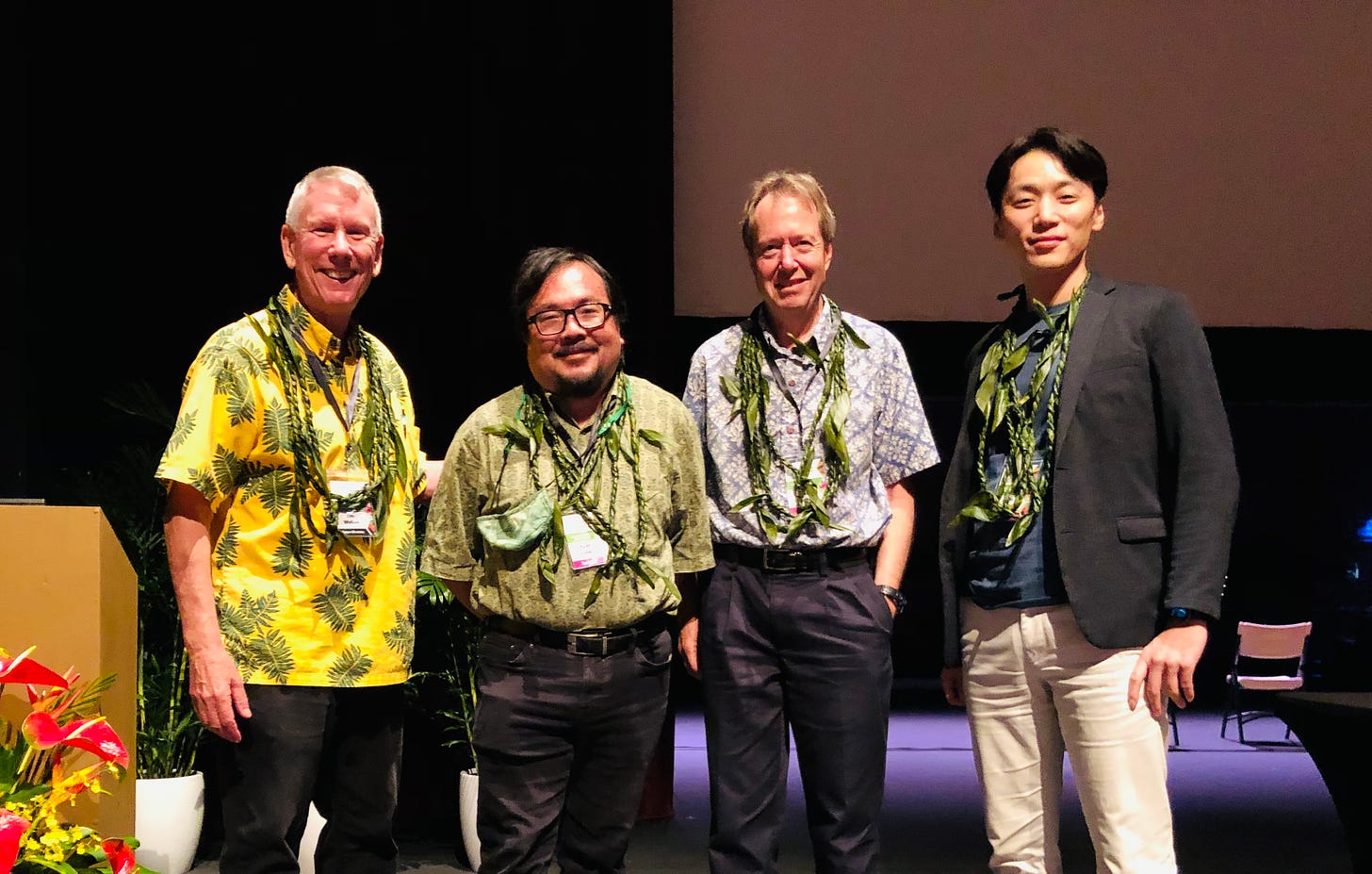
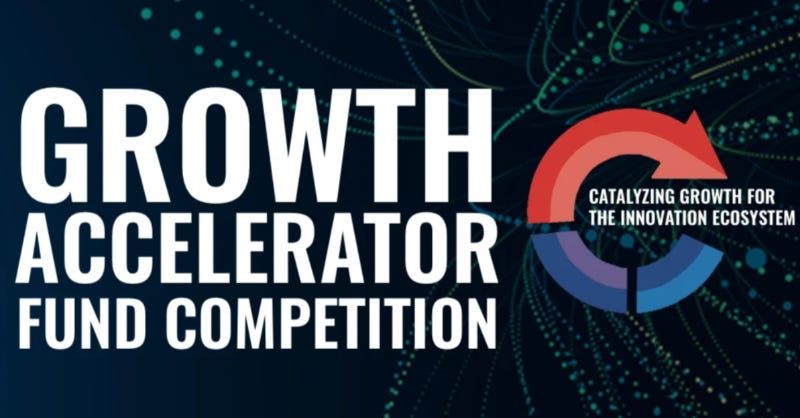
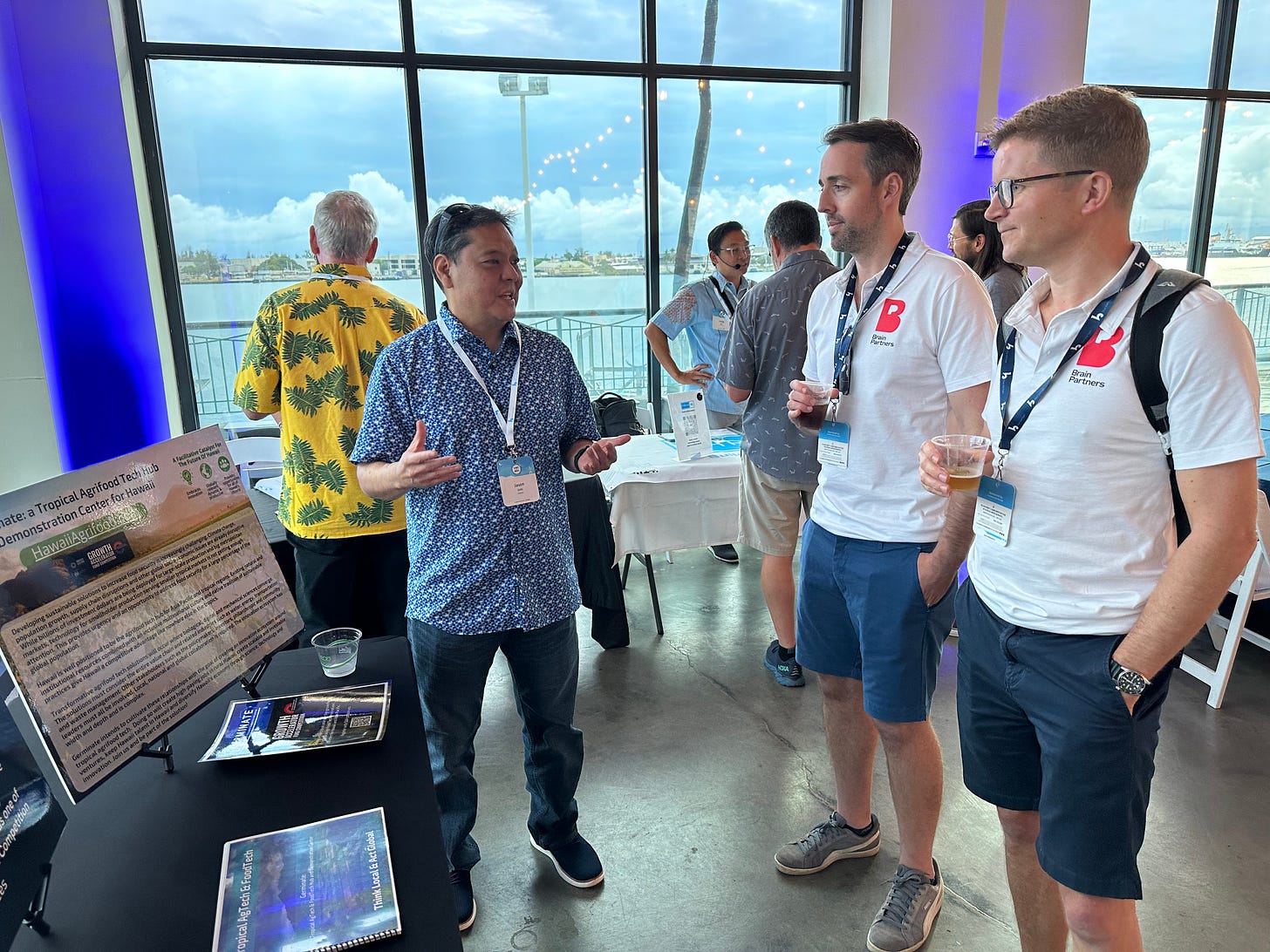

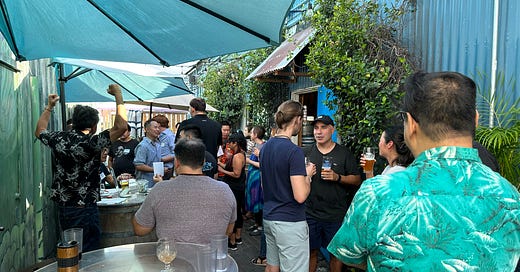

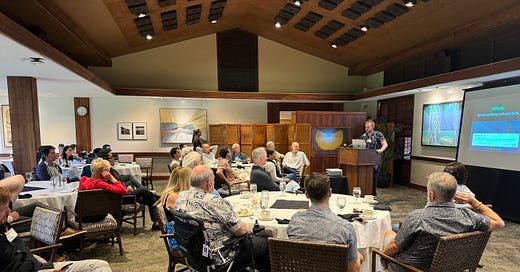

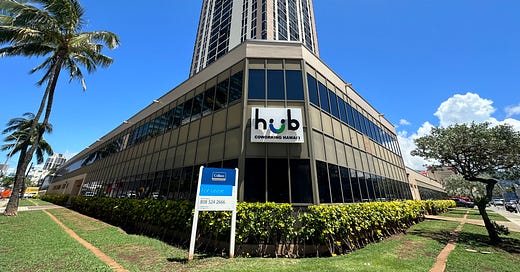

Great stuff, Ryan! Keep beating the drum!!